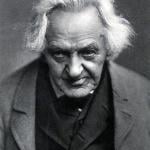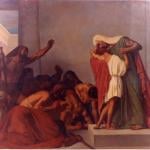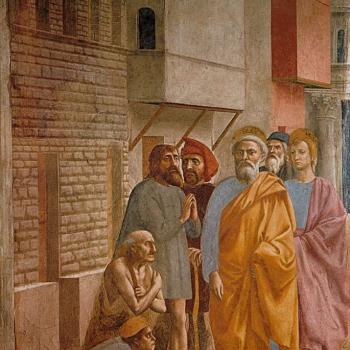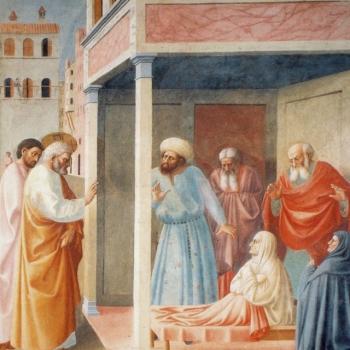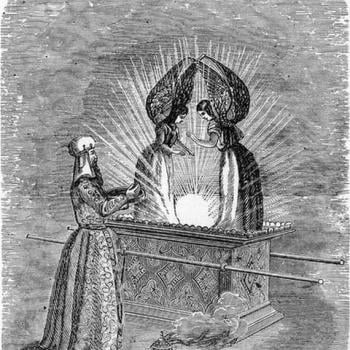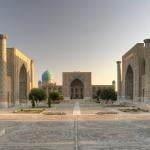Revelation 5:8 (Elders) and Revelation 8:3-4 (Angels) Are Undeniably Involved with “the Prayers of the Saints”
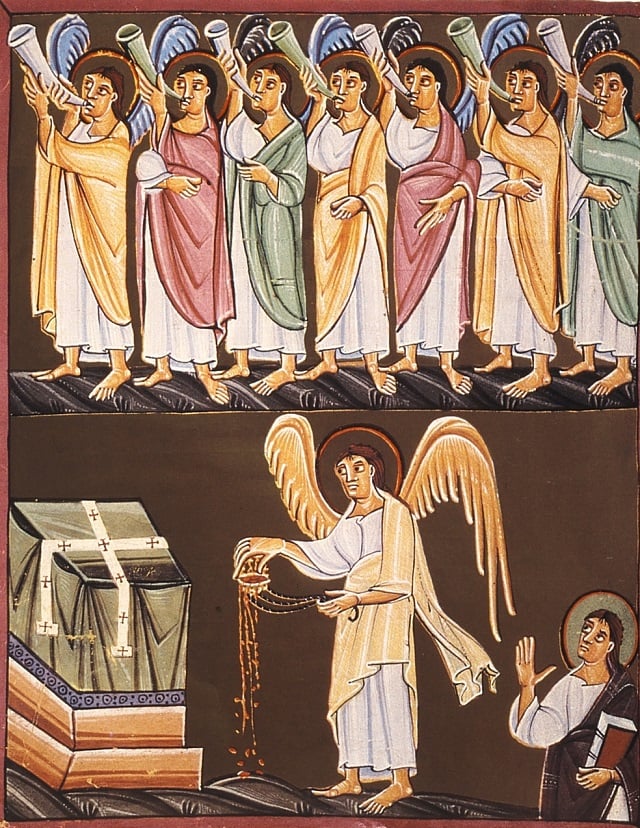
Revelation 5:8 (RSV) . . . the four living creatures and the twenty-four elders fell down before the Lamb, each holding a harp, and with golden bowls full of incense, which are the prayers of the saints;
Revelation 8:3-4 And another angel came and stood at the altar with a golden censer; and he was given much incense to mingle with the prayers of all the saints upon the golden altar before the throne; [4] and the smoke of the incense rose with the prayers of the saints from the hand of the angel before God.
Older Protestant commentaries tended to interpret these prayers or presentation of prayers in heaven to God as merely symbolic, with some exceptions; for example, Jamieson-Fausset-Brown Bible Commentary almost begrudgingly conceded that the elders are “employed by God in some way unknown to us to present our prayers.” Newer commentaries, however, usually don’t offer a knee-jerk “polemically contra-Catholic” interpretation:
1) New International Commentary on the New Testament: The Book of Revelation (Revised) (Grand Rapids, Michigan: Eerdmans, 1998), by Robert H. Mounce.
Dr. Mounce (1921-2019), a Reformed evangelical, earned a ThM in New Testament from Fuller Theological Seminary and a PhD from the University of Aberdeen. He taught at Bethel College and Seminary and was later president of Whitworth College. Dr. Mounce was an author of many commentaries and other books, and was a member of the translation teams for the New International Version and the English Standard Version. Dr. David Hubbard, author of 36 books and former president of Fuller Theological Seminary, referred to him as “one of our generation’s most able expositors.”
[5:8] The prayers of the saints are now brought before God in golden bowls. The golden bowls are full of incense symbolizing the prayers of the saints. . . . (cf. Ps 141:2, “May my prayer be set before you like incense”). . . .
The idea of angels acting as intermediaries and presenting the prayers of saints to God is common in later Jewish thought. In Tob[it] 12:15 [part of Catholic deuterocanonical Scripture] an angel says, “I am Raphael, one of the seven holy angels, who present the prayers of the saints, and who go in and out before the glory of the Holy One.” [cf. 12:12: “when you and your daughter-in-law Sarah prayed, I brought a reminder of your prayer before the Holy One”]. In 3 Baruch 11 [pseudepigrapha] it is Michael the archangel who descends to the fifth heaven to receive the prayers of the people [“Michael, the commander of the angels, comes down to receive the prayers of men”]. It was the increasing emphasis in Jewish thought on the transcendence of God that made such intermediaries appropriate. In Revelation the twenty-four elders perform this function. (pp. 134-135)
[8:3-4] The angel is pictured as offering the prayers of the saints in much the same way as the priests in the temple at Jerusalem would daily take hot coals from the altar of sacrifice and carry them into the holy place to the golden altar of incense (cf. Luke 1:9). . . .
Either the incense is mingled with the prayers of the saints or the incense is the prayers. . . . It is preferable . . . to follow the second option, which is . . . to translate, “he was given much incense to offer, consisting of the prayers of all the saints.” This interpretation harmonizes with 5:8, where the bowls of incense are definitely identified with the prayers of the saints. . . .
The angel of 8:3-5 is a heavenly priest who presents the prayers of all the saints . . . before God. (pp. 174-175)
As for the translation that he suggests, Mounce cites the great biblical scholar F. F. Bruce, from his section, “The Revelation to John”: part of A New Testament Commentary, ed. G. C. D. Howley, London: Pickering & Inglis, 1969, 629-666 (p. 646 cited).
2) Revelation (Grand Rapids, Michigan: Baker Academic, 2002), by Grant R. Osborne.
Grant R. Osborne (1942-2018), an Arminian evangelical, received his PhD from the University of Aberdeen. He also did postdoctoral research at Cambridge university and the University of Marburg. He taught at Winnipeg Theological Seminary and the university of Aberdeen and from 1977 to 2016 was professor of New Testament at the Trinity Evangelical Divinity School. Dr. Osborne was a member of the Society of Biblical Literature, the Evangelical Theological Society, and the Institute of Biblical Research, and authored many books.
[8:3-4] The prayers here most likely refer specifically to the imprecatory prayers for vengeance and justice in Rev. 6:9-11, although the presence of “all the saints” here specifically may refer to all prayers in general. (p. 345)
3) A Commentary on the Revelation of John (Grand Rapids, Michigan: Eerdmans, 1972), by George Eldon Ladd.
George Eldon Ladd (1911-1982), a Baptist, was professor of New Testament theology and exegesis at Fuller Theological Seminary. He received his doctorate from Harvard University, and authored many books. Robert Mounce called his commentary on Revelation “readable and sane . . . a careful interpretation.”
[5:8] . . . the elders are angelic beings. . . . In some way, angelic beings are thought of as assisting the prayers of the saints to rise to God. (p. 89)
4) Exploring Revelation: An Expository Commentary (Grand Rapids, Michigan: Kregel Academic, 1987 version), by John Phillips.
John Phillips received a Doctor of Ministry degree from Luther Rice Seminary (Baptist). He served as Director of the Emmaus Correspondence School, one of the world’s largest correspondence ministries.
[5:8] These mighty creatures take the feeble prayers of God’s people on earth and pour them out as a sweet fragrance before God. (p. 90)
***
The “twenty-four elders” are usually regarded by commentators as either dead human beings or angels. They appear to have other people’s prayers, to present to God. All of the above commentaries hold to that view. So the obvious question — that the commentaries don’t really delve into — is: what are they doing with them? Why does Revelation describe dead saints and/or angels presenting the prayers of “all the saints” to God? Why do they have them in the first place? If all these went right to God only, why would this scene be mentioned at all?
How does it fit in, under Protestant assumptions about prayer and its hostility to the invocation of saints? They are somehow involved in the process of these prayers “getting to God.” How can this be, if prayer is supposed to be solely between a Christian believer and his or her God, with no intermediary? It stands to reason, as a rather straightforward deduction or at least a plausible surmise, that these heavenly beings heard the initial prayers as well, or at least were granted knowledge of them in some fashion, ultimately through the knowledge of God. It stands to reason that they would be offering the prayers of the saints if they were asked to – otherwise those prayers would not be, in a sense, theirs to offer.
It would be the difference between God receiving direct prayers from people o earth and then giving them to the dead saints and angels to present to Him, which seems distinctly less plausible to me compared to a scenario where people ask an angel or a saint to pray (intercede) for them to God, and they do so as described in these passages.
What’s also striking to note is the phrase “the prayers of all the saints” in Revelation 8:3 which might reasonably suggest that such “intercessory mediation” may be undertaken by angels in the case of all prayers offered (which approaches even the “controversial” Catholic doctrine of Mary Mediatrix). Or it might be seen as a general statement, meaning in context, “the prayers of many many or a great variety of saints.” Either way, there is massive involvement of creatures in heaven with our prayers, which is a striking confirmation of the traditional Catholic doctrines of the invocation and intercession of saints.
Angels are extremely intelligent beings. We know that they rejoice when a sinner repents. They have knowledge in ways that we do not; above our comprehension.
The fact that Christ is mediator is not questioned by anyone. Asking a saint in heaven to pray for us no more interferes with the unique mediation of Christ than does asking a person on earth to pray for us. We always pray in Christ, through His power, and to Him, whether it is directly to Him, or by means of another person or angel, in heaven or on earth. Nor do we pray to angels and saints as if they were the ones who granted or denied our prayers, and had the power to do so (the ultimate recipients).
*
***
*
Photo credit: The Seven Trumpets and the Angel with a Censer [Revelation 5], Bamberger Apokalypse, c. 1000 [public domain / Wikimedia Commons]
Summary: I cite four reputable recent Protestant commentaries that hold to the interpretation that heavenly beings are presenting prayers of other people to God, in Revelation 5 and 8.


